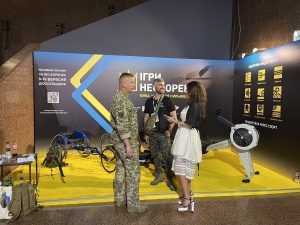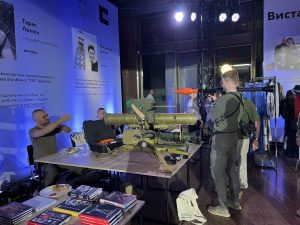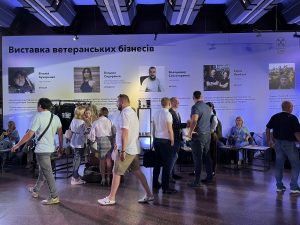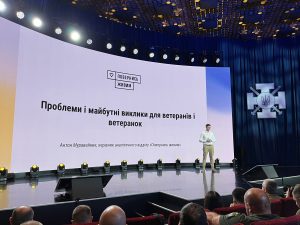"Benefits and social guarantees for veterans should make sense"
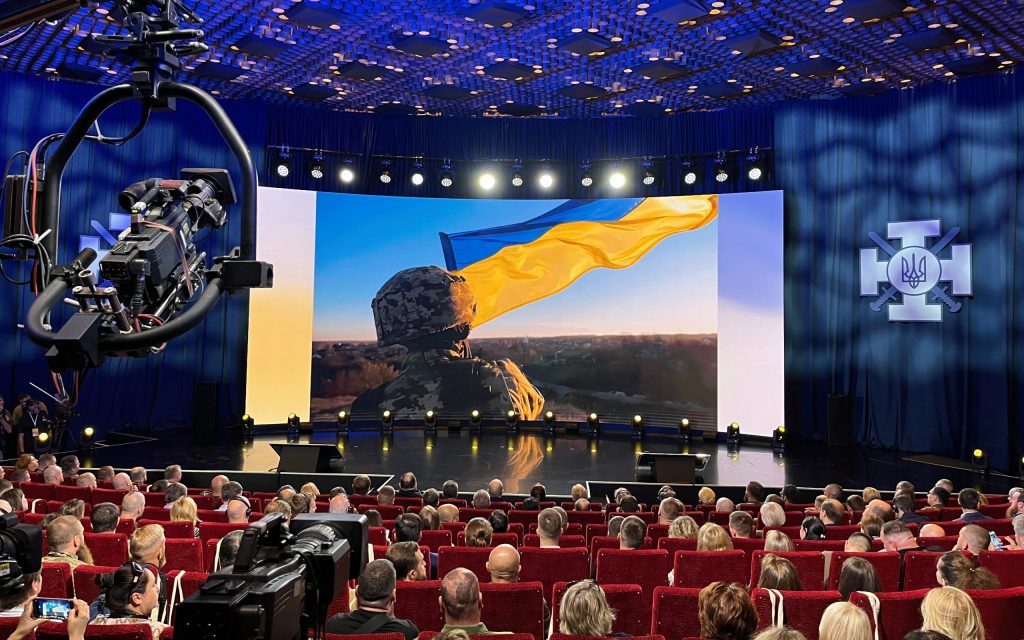
On 22 August, the VI International Veterans Forum “Ukraine. Defenders. Future” happened. The event was attended by over 500 participants. They discussed the state veteran policy, health and rehabilitation, return of veterans to civilian life and reintegration into communities.
President Volodymyr Zelensky made an online speech at the opening of the forum. The Speaker of the Verkhovna Rada Ruslan Stefanchuk, Prime Minister Denys Shmyhal, Se cretary of the National Security and Defence Council Oleksiy Danilov, Minister of Defence Oleksiy Reznikov, and Minister of Veterans Affairs Yulia Laputina addressed the participants from the stage.
The Forum was also attended by Kajsa Ollongren, Minister of Defence of the Netherlands, and Andrew Murrison, Under Secretary of State at the Parliament of the United Kingdom of Great Britain and Northern Ireland for Defence, Veterans and Military Families.
The state’s capacity to support veterans needs to be built up in advance, without waiting for the war to end, said Anton Muraveinyk, Head of the analytical department at Come Back Alive, in his speech “Problems and Future Challenges for Veterans”:
– When veterans return home, there is a need for physical and psychological rehabilitation. Their number is increasing, and the system is overloaded. International partners are ready to lend a hand. But even with support, the need to scale up the state’s capabilities is enormous. The basis for this is new legislation. The Basic Law on the Status of War Veterans was adopted in 1993. Since 2014, it has been amended, but it still does not respond to the current state of affairs.
The current legislation provides for an extensive list of guarantees. However, they are not available to everyone on the same level. Military personnel and veterans living in large cities have greater access to social guarantees than people from small communities. Second, not all guarantees make sense. For example, veterans will receive a thousand hryvnias of state aid until 24 August, while family members of the fallen will receive 650 hryvnias. What problem will this amount solve? For individuals, these funds are insignificant, but on a national scale, the amounts can be huge. There will always be a lack of resources. So we have to spend them as efficiently as possible. Benefits and social guarantees must make sense, add value for veterans and their families, and help solve existing needs and problems.
The bare minimum that Ukraine must do for all veterans is to ensure their rehabilitation and readaptation. This is a priority. Physical rehabilitation, as well as psychological and social rehabilitation, is the foundation of the future life of a veteran and his or her family. Unfortunately, the state’s capacity will not cover the demand for housing for veterans for many years to come. But it is in our power to give them the tools that will restore people’s desire to live. Therefore, our way is to create fundamentally new legislation. This includes the development of an optimised, yet workable and accessible list of really important social guarantees. Given the limited resources, we must pursue quality rather than quantity.
At the Come Back Alive forum, the foundation presented projects for the rehabilitation of veterans through sports – the Invictus Games international competition and “Sports Ambassadors”.
The Foundation has been a co-organiser of the national selection for the Invictus Games since 2019. Our experts are involved in the selection of the team, accompanying it at all stages of preparation and at the competition itself. We implement the Sport Ambassadors project with the support of the US Embassy in Ukraine, in partnership with the NGO Games Invictus Ukraine.
“Rehabilitation through sport is one of the most effective tools for returning to a quality life after combat injuries and wounds. Adaptive sport allows you to expand your physical limits and becomes a tool for recovery and socialisation,” says sports ambassador Mykola Hutskal. “If you have a musculoskeletal injury, you can play wheelchair basketball, where all players are equal. If you have an injury or amputation of one arm, you can shoot a bow with your teeth. With injuries or wounds to your legs, you can shot put sitting down, and master cycling on a hand bike.”
To demonstrate the accessibility of adaptive sports, the sports educators presented special sports equipment, provided consultations and showed how to use adaptive equipment. A handcycle, an archery bow, a rowing machine and a running wheelchair were presented at the location.
The forum was organised by the Ministry of Veterans Affairs of Ukraine and the Ukrainian Veterans Foundation in cooperation with Come Back Alive. This is an annual event that traditionally takes place before Independence Day. It brings together veterans, volunteers, government officials, veterans’ organisations and international partners.
